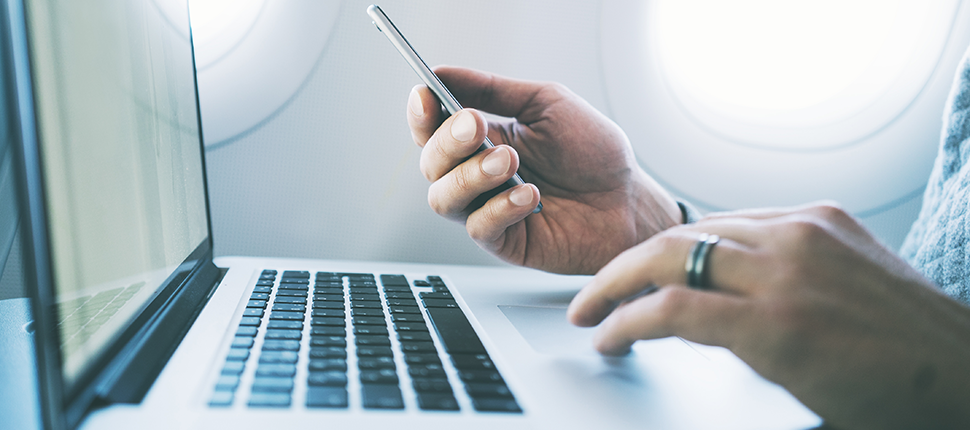Cybersecurity Tips for Road Warriors – Global, Local, and Everything In-Between

Maybe you’re traveling for business. Maybe you’re on vacation. Maybe you just want to get out of the house today and work at your local coffee shop. Whatever kind of road warrior you are, you’ll be outside your normal environment, so you should pay special attention to security. It’s not paranoid to realize there’s data you don’t want stolen, and passwords and accounts you don’t want hacked.
Cutting your risk starts with situational awareness, and that’s almost entirely free. There actually could be someone watching you with bad intent. It happens. That free Wi-Fi network you’re tempted to connect to could be owned by a criminal. It happens. So, in public places:
- Keep your laptop and smartphone with you, and don’t ask strangers to watch them for you if you need to briefly step away.
- Notice who’s nearby, and whether they seem to have an unusual interest in what you’re doing.
- Be especially aware when entering user IDs and passwords. If you were at an ATM, you’d physically block others’ view; try to do the same with your computer or phone. (Consider, also, investing in a privacy screen that makes it harder for someone to see your work unless they’re right behind you.)
- In hotels, shut down your laptop when you aren’t using it, and lock it in the hotel safe if you can’t carry it with you.
- Don’t use free, unsecured Wi-Fi connections! If you’re logging on in a coffee shop or restaurant, make sure you’re using the official Wi-Fi network, not a network with a similar name designed to trick you. Be especially careful in airports, where travelers are often desperately looking for a free connection, and criminals can find plenty of victims by offering one. Before you travel, explore the airport’s website to see if “official” free Wi-Fi is available and how to safely access it. Alternatives to unsafe airport Wi-Fi also include:
- Bringing your own connection, with a mobile hotspot that uses your cellphone carrier’s data plan
- Connecting through a free hotspot offered by your internet, cellphone, or TV service provider
- Renting service by the hour or day, through a legitimate service such as Boingo (and look for free speed upgrades that might be available if you use the right credit card)
- Use a virtual private network (VPN) if at all possible. VPNs encrypt everything you send and receive across the internet. If you’re connecting to your employer’s network, they may well require you to use a VPN they provide. Otherwise, you’ll need your own. There are many VPN providers of varying quality and reputation – read reviews from publications such as PC Magazine and PC World before you choose one.
If you’re traveling across borders or somewhere with an especially poor reputation for safety and privacy, consider removing all private information from your devices before you depart. The less data you carry, the safer you’ll be. You can access important files through trusted cloud services from the road, if necessary – as long as you strictly secure those passwords! Some serious road warriors even use travel-only devices they can “wipe” (formatting drives to eliminate all data, and then freshly reinstalling operating systems and software) before leaving home.
Of course, when you’re traveling, all the usual cybersecurity precautions apply, only more so. Keep your software updated. Log in as a normal user, not as an administrator, to limit what can be done with your computer if it escapes your control. And make sure you have state-of-the-art security software such as Sophos Home Premium to safeguard against malware and other threats. You need someone watching you who’s 100% on your side.